From the Olympics to the Euros and the rise of women’s competitions, BBC execs and Dock 10’s head of studios reveal how their continuing partnership helps deliver coverage of some of the biggest events in the sporting calendar
John Murphy
Design director, BBC Sport
Virtual and hybrid presentation studios are now much more used for global sports events. There are various reasons for this, including cutting-edge visuals, cost efficiency, sustainability and greater engagement.

While the set-up requires careful planning and investment, the long-term benefits make it a smart choice for broadcasters aiming to innovate and scale their production capabilities.
From a creative and visual aspect, there is no better relationship than a ‘real location’ backdrop combined with a virtual extension that marries and blends the two worlds. This worked well for us in Berlin and Paris for the Euros and Olympics last summer.
However, we also have to understand that due to production costs and reaching sustainability targets, it’s not always possible to have a hybrid solution that combines on-site studio and VR technology.
This is where full VR studios come into play, whether that be LED volumes or green screen. This allows you to create visual experiences – virtually creating a ‘real’ location or using AR, XR and analysis techniques to create a graphical studio environment.
Alongside the considerable benefits of virtual studios, such as production efficiency, enhanced viewer engagement, scalability and sustainability, is the ability of real-time gaming graphics to help engage with younger audiences.
The landscape for VR, XR and AR in sports production is only going to grow, whether that be for broadcast, digital or social consumption.
Although there is still a need for on-site OB for some large-scale sporting events, there is no doubt that centralised production hubs are key to the future of production in sports.
We use areas of Dock 10 as a central production hub for various events, enabling us to produce the majority of our weekly football output using studios, galleries and office space at MediaCityUK in Salford, including Match Of The Day.
Sports streaming is also now well-established, opening up a wide range of possibilities for sports broadcasters to innovate around fan engagement and grow sports rights outside of linear TV schedules.
Although the landscape of sports broadcasting has been changing dramatically, it still plays a major part in how sports viewing is consumed. Whatever form of sports content and in whatever context, creativity and innovation has to be at the heart of what is produced.
Victoria Cotton
Exec producer, live streaming, BBC Sport
With our streaming strategy, we look to provide more depth on our major events. We can exploit the number of extra streams available, go into greater detail with analysis, provide highlights, extra features and develop different formats. The one thing we want to keep is the quality of experience for the audience, both in terms of user experience and content.
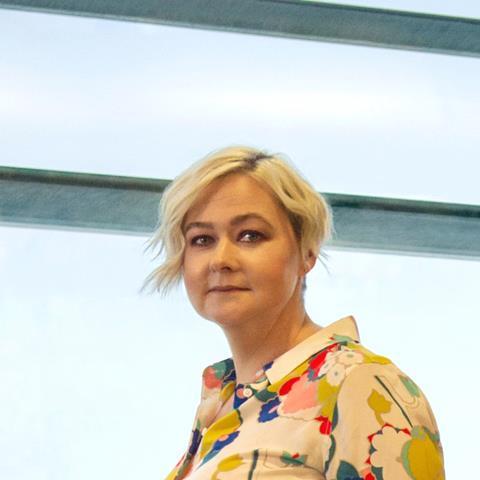
Streaming has also meant we can trial content that perhaps has a smaller audience. We can be flexible and experiment with our commissioning in this area. It sounds a bit flippant to call it a playground, but event formats and audience needs are changing so quickly, streaming can provide the quick insights we need to be an agile broadcaster.
There is so much in development where we’re looking at audience interaction, navigation and personalisation, but the BBC is a big beast with lots of different platforms. We want to make sure there’s the same quality of experience on all platforms and everything fits together to provide a great experience.
Every odd year now is a big one for women’s sport, which for me is a wonderful thing. We’re delighted to have the broadcast rights for the Euros, which we share with ITV, and we’re the exclusive broadcaster for the Rugby World Cup, as well as having the audio rights to the cricket. When you add in our coverage of Wimbledon, the World Athletics Championships, the WSL, the Women’s FA Cup and the Women’s Six Nations, we have huge amounts of airtime where women will take centre stage in 2025.
“We think like fans, behave like fans and make the content and programmes that sports fans want to see”
Planning for the summer is split into three different strands. As a department, BBC Sport works across digital, social, TV, streaming, radio, sports news, nations and regions, to collaborate on plans for the editorial delivery of the event.
We’ll look at specific ideas for each platform and outlet, and take that from build-up through to the delivery of the live moment, taking into account how we can maximise the longevity of the event. We try to build a co-ordinating, platform-perfect suite of content across all our outlets, which is a formal way of saying we think like fans, behave like fans, and make the content and programmes that sports fans want to see.
It’s not just about maximising the impact of the big international moments. If women’s sport is to grow to its full potential and really lean into the opportunity to bring in a whole new audience, it’s about making sure there’s a consistent year-round offering. We need to keep showcasing women’s sport. We’re really proud to be a broadcaster of the Netball Super League, and we’ve supported the growth of women’s rugby at club level too.
There’s a real recognition of how important the BBC still is when it comes to bringing big audiences to important events, but also how we’ve adapted and changed in reaction to how audiences have changed.
Andy Waters
Head of Studios, Dock 10
We’re always excited to collaborate with BBC Sport on delivering some of the world’s greatest sporting events, from the Fifa World Cup to the Olympics. With this comes a great deal of responsibility. In terms of design requirements for the virtual studio, it is all about collaboration. There’s a lot of communication back and forth about what the studio will look like, and a huge amount of work to create it and then to refine it.
One of the main challenges for designing studios to host coverage of major events like the World Cup and the Olympics is working within the organiser’s brand guidelines. Logos and branding have to be incorporated and brought to life in a 3D environment within a virtual studio.
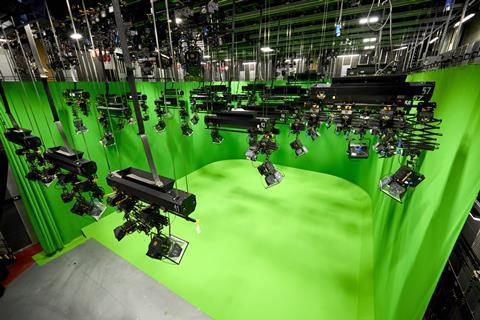
It’s always important to have early engagement with the client, so we have time to collaborate on the design together and deliver the best virtual studio possible. The advantage of events such as the Olympics and the World Cup is that they happen every four years, so you are able to move steadily towards long deadlines.
But during those four years, broadcast technology completely changes and there are new and more creative ways of delivering sports programming.
For the major events, you want to be using the very latest camera and virtual studio technology. So although you have long time periods between each event, there are often lots of technical innovations to incorporate, which adds to the challenge.
A virtual studio improves the viewing experience in so many ways. It is possible to present major sporting events from stand-up positions within a stadium, but these are not always the most exciting environments from a viewer perspective. The background might be a half-empty stadium or somebody cutting the grass.
“A virtual studio can provide a more dynamic, immersive and visually engaging environment for viewers”
By comparison, a virtual studio can provide a much more dynamic, immersive and visually engaging environment for viewers, which really brings a tournament and its brand to life. The studio also acts as the epicentre for a broadcaster’s coverage, providing a central hub to link to the many different locations of major sports events.
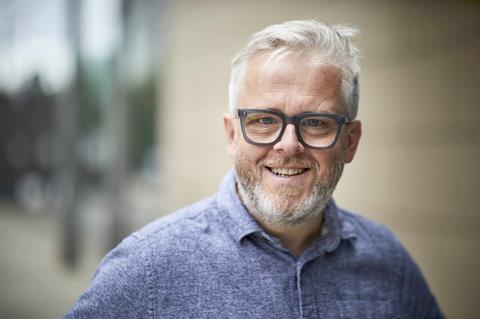
Meanwhile, our remote production facilities have been used to deliver a huge amount of sports coverage for the BBC, from major events through to weekly football matches. Remote production is something we can do really well at Dock 10 because of our specialist infrastructure – we are one of the most connected sites in the UK.
But remote productions involve complicated workflows and multiple partners. To deliver remote productions seamlessly, you have to be able to collaborate with other suppliers, many of them with their own ways of working and their own innovative technology.
For all major sporting events, we’ve seen a huge increase in requirements for content in addition to traditional linear television coverage, whether on apps, social media or catch-up. Viewers not only expect to see coverage of the main event, but lots of additional content before and after the event itself. You need to have the facilities to produce content for all of the different platforms all at the same time.
Ron Chakraborty
Head of major events & general sport, BBC Sport
Next year marks 15 years since Dock 10 and the BBC landed in MediaCityUK, and it’s been a very harmonious partnership. Some things are just part of the weekly ritual now - Saturday afternoons with the Match Of The Day gang bantering in the green room while the show is skilfully put together elsewhere in the building is the best example.
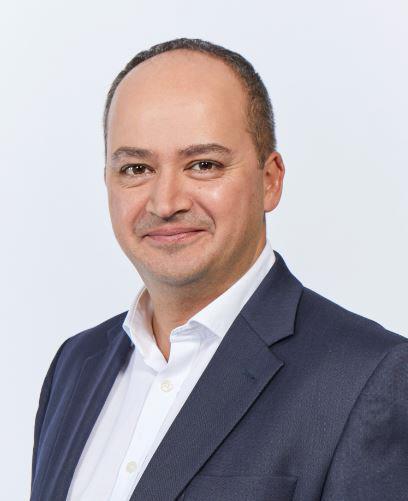
But I also remember the heroics of the Tokyo 2020 Olympics and the hastily put-together Plan B forced on us by Covid. It was a remarkable achievement by all concerned.
Last year was a sporting year full of brilliant moments but also a pretty relentless one for us, particularly the back-to-back summer months with the men’s Euros, Wimbledon and Paris 2024.
Studio plans for an Olympics tend to come together when there are a couple of years to go. You’ve had your production model approved, you know where the main building blocks are going to be, and you can start looking at location options – with Paris, as you can guess, there were plenty.
We looked at a number of potential studio locations, from rooftops of buildings to bespoke studio structures by the Seine, but eventually opted for the studio tower built by Olympic Broadcast Services (OBS). There were 10 studios there in total and, as well as the magnificent view of the Eiffel Tower, it meant we had much of the technical and logistical support organised by OBS.
With the studio box and view sorted, we then started thinking about creating an extended reality (XR) studio, an approach we’ve already used on events such as Wimbledon and last summer’s men’s Euros. It offers the best of both worlds: an iconic backdrop for a strong sense of location, plus the additional canvas of the VR – which, as well as increasing the scale and visuals of the studio, can add to the editorial elements, such as analysis, promotion and information.
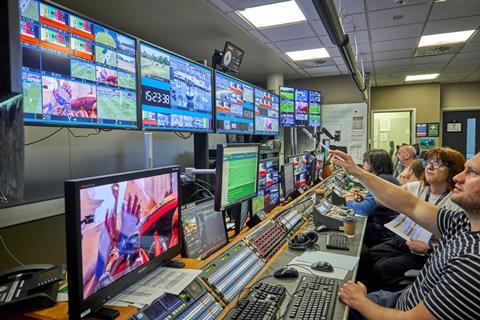
It feels like we’re in the middle of a magic decade when it comes to women’s sport: the hockey gold at Rio 2016, the 2017 Cricket World Cup, netball gold at the 2018 Commonwealths, the unforgettable Euros triumph and, of course, four consecutive female winners of Sports Personality of the Year.
Fingers crossed 2025 is rugby’s moment in the spotlight and it comes at the end of a great summer of sport. It’s given us at the BBC a great opportunity to find new audiences for sport in places we might not have considered a decade ago. It’s an exciting challenge.

































No comments yet